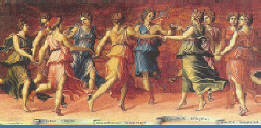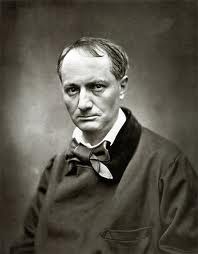|
|
Baudelaire was born in Paris where his father was a civil servant
and amateur artist. The latter was over 30 years older that his wife and died when Charles
was six years old.
Madame Baudelaire married an army officer about one year later, however, and the family
moved to Lyon where Charles began school in 1832 at Collège Royal but on returning to
Paris in 1836, the family sent Charles to Lycée Louis-le-Grand from which he was
expelled shortly before graduation.
He adopted a dissolute lifestyle and attempted to support himself through journalism.
He began to take drugs; and it is thought that it was at this time that he acquired
sexually transmitted diseases from the consequences of which he eventually died. He was
sent on a brief visit to India in the hope that he would reform but he returned within
a year and recommenced his old ways having attained his majority and inherited his
legacy. After he had squandered much of the funds in his Bohemian lifestyle, his family
successfully sought control of his finances and paid them to him in an allowance
for the remainder of his life.
Baudelaire began critical and poetic works in the 1840s in which he praised Romanticism
and defined Modernism. He was, nonetheless, critical of industrialization and its
obliteration of art such as the threat posed by photography to painting.
After participating in the revolution of 1848, he became disillusioned with the Second
Empire and retreated into his work. He translated the works of Edgar Allen Poe and
assembled an influential collection of his poems that were published as Fleur du Mal.
The collection was greeted with the support of fellow poets and artists but it was
severely criticized by the censors as shocking and depraved and who forced withdrawal
of six poems that were not reinstated until 1961.
He moved to Brussels in 1863 on a lecturing tour but he suffered a series of strokes that
left him partially paralyzed and with a severe speech impediment. He returned to Paris
under the care of his mother but died in 1867.
He is regarded as a father of Symbolism, as a founder of prose poetry and as the
inspiration for numerous contemporary poets and successors into the twentieth century.
His works have been set to music by several composers including Chausson and Debussy.
|

